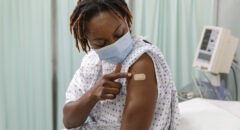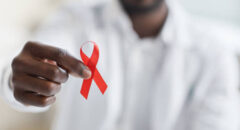 More and more individuals stricken with HIV – the human immunodeficiency virus – are living longer and stronger than ever before. With PreP and TasP preventive treatments and medications circulating and new findings like Undetectable = Untransmittable, there is much evidence out there that having HIV no longer means having a death sentence.
More and more individuals stricken with HIV – the human immunodeficiency virus – are living longer and stronger than ever before. With PreP and TasP preventive treatments and medications circulating and new findings like Undetectable = Untransmittable, there is much evidence out there that having HIV no longer means having a death sentence.
However, getting infected with HIV is a life-changing event. With access to treatment, that's life-changing – not life-ending, you can take care of yourself and look forward to years or even decades of good living.
As recently as the late 1980s, infection with HIV usually meant an early death. Within a few years or even a few months of catching the virus, people would develop AIDS (acquired immune deficiency syndrome), a disease that destroys the body's ability to defend itself from threats including viruses, bacteria, and some types of cancer cells. Today, people with HIV can expect to live just as long (or nearly as long) as anyone. Amazingly, more than half of people who are infected with HIV today will eventually die of something else.
If you have HIV, delaying AIDS as long as possible will be your top priority. There is a small chance that you might even be able to avoid the disease completely. According to a recent report from Massachusetts General Hospital, there are about 5,000 people in the United States who are infected with HIV but remain very healthy and don't seem to be progressing toward AIDS at all. Staying healthy with HIV isn't easy, but the rewards are worth every effort.
Treatment For Life
Sticking with your medical plan is the single mostimportant thing you can do to improve your chances for a long, healthy life. Without treatment, a newly infected person can expect to live about 10 more years, and he or she will probably be sick and weak for much of that time. Modern treatments for HIV – especially highly active antiretroviral therapy (HAART) – have turned the infection from a death sentence into an illness you can live with for decades.
Thanks to these treatments, researchers now estimate that a 25-year-old with a newly diagnosed HIV infection can expect to live almost 40 more years. That's enough time to have a lasting relationship, start a family, and complete a career. But advances in medicine won't do you much good if you don't keep up with your treatment. For the rest of your life, you'll need to keep taking your medicines exactly as directed and to keep seeing your doctor often.
An eye-opening study recently showed the life-saving power of regular medical care. Researchers followed more than 2,600 HIV-positive men for more than four years. All the men were receiving care at a Veteran's Affairs clinic or hospital. As reported in the journal Clinical Infectious Diseases in 2007, the researchers found that men who visited the clinic at least once every three months for the first year were about 50 percent more likely to be alive at the end of the study than men who visited only once during that year.
Since many medications for HIV have powerful side effects, keep in close touch with your physician about what you're experiencing; he or she may be able to adjust the dosage or change your medication regimen if necessary.
Living Well, Staying Healthy
Getting the right treatment is just one part of staying healthy with HIV. You also need to take a look at your lifestyle: Are you doing what you can to protect your body now and for years to come?
Good nutrition is an excellent start. Your immune system runs onnutrients, so healthy eating is one of your main defenses against HIV. Go for lots of fruits, vegetables, whole grains, and lean proteins. If your medications sap your appetite or cause stomach trouble, you'll need to make an extra effort to get the nutrition you need. For specific advice, talk to your doctor or, maybe better yet, a dietitian who is familiar with HIV.
To further protect your immune system, stay away from "recreational" drugs – heroin, for instance – which are illegal and harmful to your health. Don't smoke or have more than a couple of drinks each day (no more than one a day if you're female). Recreational drugs and heavy drinking will weaken your defenses against germs, and they can also impair your judgment. You might also end up taking risks – such as sharing needles – that you really can't afford. You could catch another strain of HIV, give the virus to someone else, or catch another serious virus such as hepatitis C.
To avoid other infections, you should avoid risky foods such as raw seafood, unpasteurized milk, or undercooked meats. These precautions are especially important if your system is weak and you're prone to illness. Wash your hands regularly to protect yourself from colds and other common illnesses. You should also get a flu shot every year and make sure your other immunizations are up-to-date. Make sure to practice safe sex by using condoms; not only will you be sparing your partner HIV, you'll be protecting yourself from other sexually transmitted infections.
Other basics of healthy living are especially important for people with HIV. Regular exercise will help you feel at your best both mentally and physically. And getting enough sleep will give your body the strength and energy it needs to fight your illness.
Healthy living – eating nutritious foods, avoiding cigarettes, and getting regular exercise – has long-term benefits that can show up decades down the road. Taking care of yourself today could help prevent heart disease and some cancers in the future. Because you likely have so many years ahead of you, these future payoffs might be just as important as the extra strength and energy that you can earn today.
Healthy Mind, Healthy Body
In some ways, HIV can be nearly asmuch trouble for the mind as it is for the body. Like any other chronic disease, HIV infections can make a person feel helpless and overwhelmed. The mere thought of taking medication for the rest of your life may be daunting and depressing.
In fact, people with HIV are twice as likely as other people to be depressed. And that's just one of your challenges. The virus and treatments can change the way your brain works, possibly making it harder for you to think clearly or control your moods.
It's perfectly natural to worry about HIV. Give yourself a free pass to feel shocked and concerned. But if anxiety and depression are slowing down your life or draining the strength and energy you need to fight your illness, you'll need to get help.
Counseling and the right antidepressant medications can bring much-needed relief. You should also take time for yourself and relax. Take a trip, start a blog journaling your story, or take up yoga, whatever puts your mind at ease will be the biggest aid in your treatment.
For more information on HIV and treatments, visit our HIV Learning Center on BlackDoctor.org.
SOURCES:
Centers for Disease Control and Prevention. Living with HIV/AIDS. 2007.
U.S. Department of Health and Human Services. Women and HIV/AIDS: Caring for yourself and others. 2009.
U.S. Department of Health and Human Services. Women and HIV/AIDS: Emotional health. 2009.
Massachusetts General Hospital. The rare few. 2009.
Lohse, N. et al. Improved survival in HIV-infected persons: consequences and perspectives. The Journal of Antimicrobial Chemotherapy. 2007. 60(3): 461-463.
Giordano, T.P. et al. Retention in care: a challenge to survival with HIV infection. Clinical Infectious Disease. 2007. 44(11): 1493-1499.
Mayo Clinic. HIV/AIDS: Lifestyle and home remedies. 2008.
United Nations. Living positively: Nutrition and exercise.
Last Updated: Jan 20, 2018









